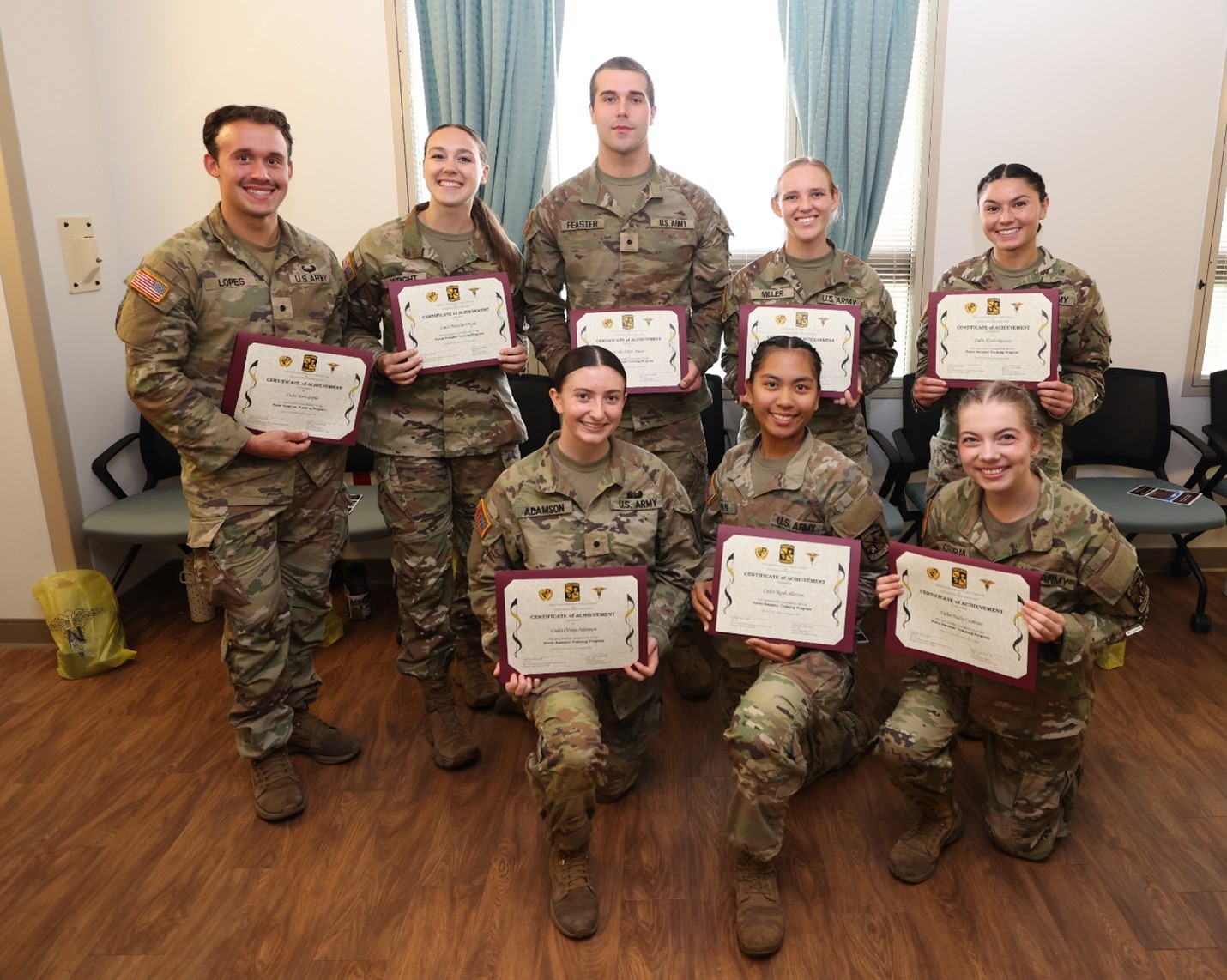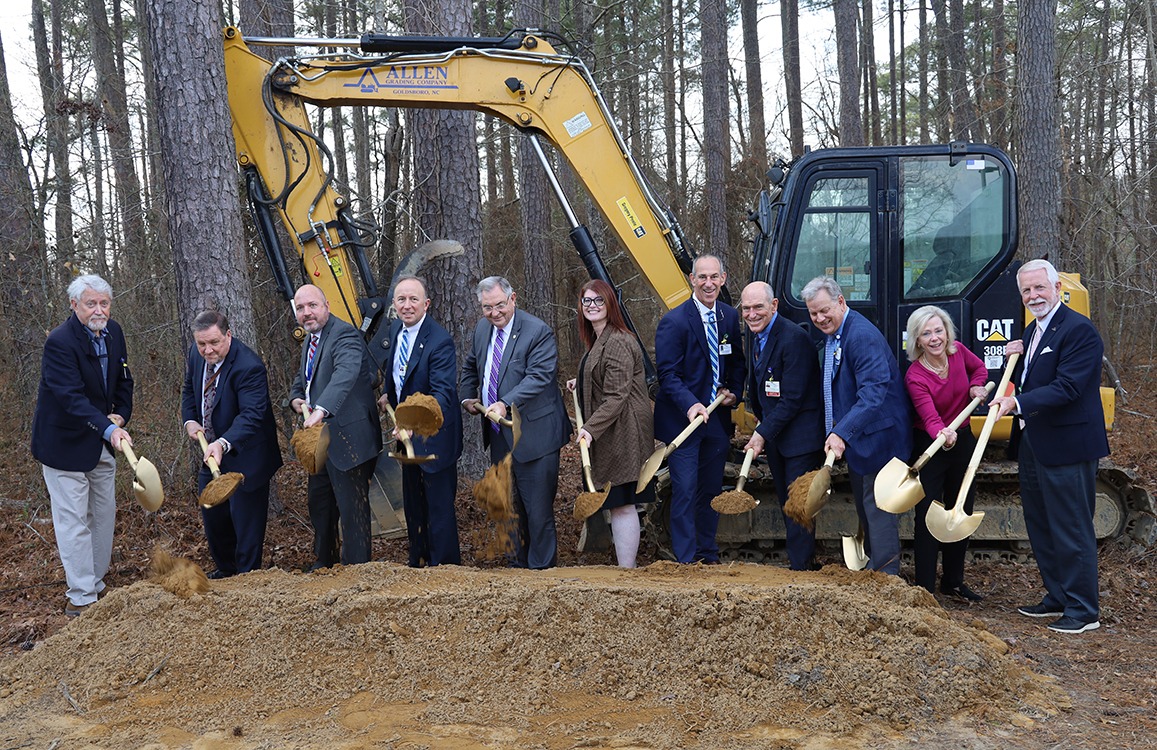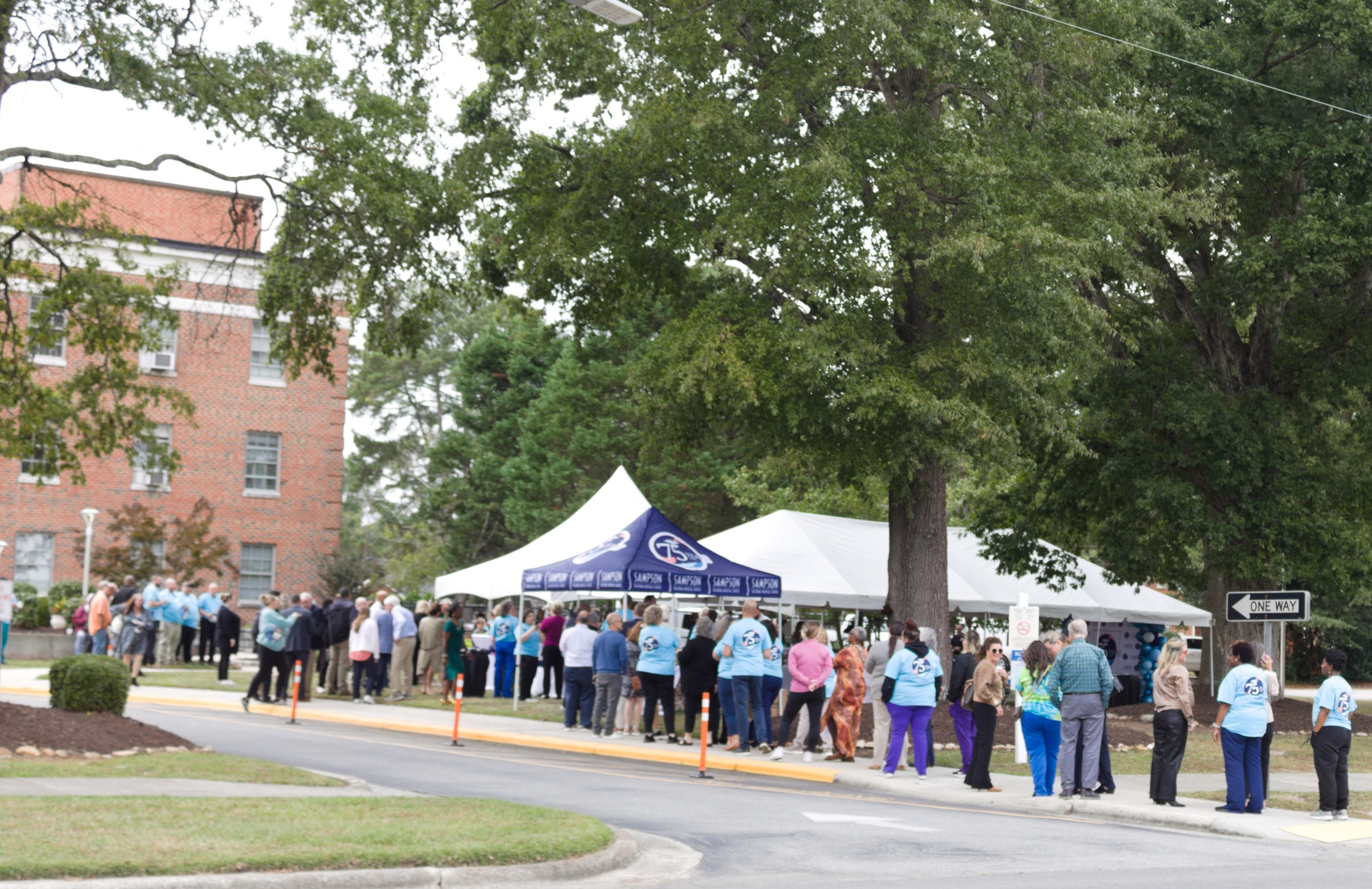
Former firefighter Jolene Hammons lived with chronic back pain and high doses of opioids for more than a decade before she found relief with a spinal cord stimulator.
Hammons decided she wanted a chance at living unmedicated and began working with Rob Thomas, PA-C, at FirstHealth Interventional Pain Medicine in Pinehurst and asked to be taken off opioids. Thomas helped her taper off Duragesic® and agreed that, after Hammons reached one year without fentanyl, she could try a spinal cord stimulator to treat her refractory back and leg pain.
Spinal cord stimulators are small, surgically implanted devices that send low levels of electricity into the spinal cord to help relieve pain. Electrodes are placed between the spinal cord and vertebrae and patients can use a remote control to send electrical impulses to the spine that work to interrupt pain signals before they reach the brain.
Thomas said SCS therapy can be a beneficial option for patients who haven’t experienced improvement with standard treatment, which may include pharmaceuticals, epidural steroid injections, nerve root blocks, radiofrequency ablation and surgery.
“Most of our patients have been put through the conventional medical management cycle without finding relief,” Thomas said in a press release. “A lot of our spinal cord stimulator candidates are classified as failed back surgery syndrome patients. They’ve had surgery and outcomes were not favorable. Other categories of patients that qualify for this therapy include those with post-laminectomy syndrome, non-surgical refractory back pain, painful diabetic neuropathy, arachnoiditis, phantom limb pain and complex regional pain syndrome.”
All patients must complete a spinal cord stimulator trial, which lasts around seven days, before moving forward with implantation. During the trial, small wires are placed into the epidural space and held in place with an anchoring mechanism that hooks the wires to the stimulator battery. The device has a wide variety of different programs and settings, and patients have the chance to test various settings during the trial.
For a trial to be considered successful, Thomas said physicians look for a few key components, including:
A greater than 50 percent reduction in pain
Increased mobility and the ability to perform daily living activities without usual impairments
Improved sleep
A reduction in pain medication dosage
If the trial is a success, the patient can then have the stimulator implanted. The procedure is typically performed by an orthopedic spine surgeon or a neurosurgeon in an outpatient setting.
Hammons has had a positive experience with the device, which she has used for three years.
Lauren Sylvester Mokris, M.D., an anesthesiologist and pain management physician at FirstHealth Interventional Pain Medicine, said SCS therapy has been a positive addition to the clinic’s variety of innovative techniques.
“We know treatment plans are never one size fits all and it’s important to work with patients’ unique histories and diagnoses to find what is most efficient for them,” Mokris said in a press release. “Our goal is to stop or reduce chronic pain to the greatest extent possible and offering spinal cord stimulation therapy has certainly aided in that mission as one of many possible therapies.”

All smiles on graduation day! (From left to right: Back row: Col. Donald Kimbler, Cadet John Lopes, Cadet Priscilla Wright, Cadet Jakob Feaster, Maj. Cameron Player, Col. Guy St. Louis; Middle row: Capt. Carmen Williams, Cadet Nyah Marzan, Cadet Madi

CFVH celebrated the groundbreaking for their new adolescent inpatient psychiatric unit in Lillington on Jan. 31. The facility is estimated to be completed by December of this year and is located on the campus of Central Harnett Hospital at 215 Bright

The 75th Anniversary Celebration featured remarks from hospital and community leaders, as well as historical displays showcasing the hospital’s journey. Photos by GFBJ.On Friday, Oct. 10, Sampson Regional Medical Center celebrated 75 years of s